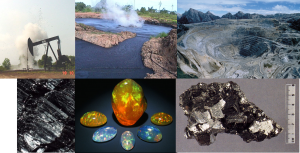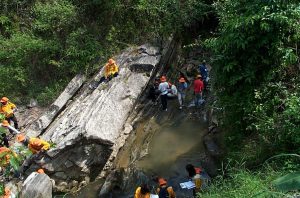Homepage : http://geology.fitb.itb.ac.id/

The Geology Engineering Master Program (S-2) is arranged for those who want to deepen one of the branches of geology. The latest developments in geology are more towards the application of modern technology and approaches by using other natural sciences such as physics, chemistry, biology, and mathematics. Therefore, the curriculum of the geological engineering master program is designed in such a way that it is very flexible and gives participants the freedom to develop their own curriculum program. However, there are also some compulsory lectures in accordance with applicable regulations (around 70% compulsory courses). This curriculum can also take advantage of the presence of foreign and domestic guest lecturers who are leading experts in their fields.
Education duration is 4 semesters with a study load of 36 credits. It is possible for a student to complete the program in 3 semesters. Compulsory courses, including a thesis, consist of 24 credits. Elective courses consist of 12 credits. The academic year starts every August / September.
The aim of this program is to develop the level of ability of participants to conduct research in one or more fields covered in geology and not solely in improving professions. Thus the aim of this program is more of a research degree than a professional degree.
The Geological Engineering Masters Program is divided into non-selected (non-option) and two-choice (option) paths:
Non Track Options (Non Options) with special fields:
- Stratigraphy, Micro and Macro Paleontology, Petrology and Mineralization, Hydrogeology, Sedimentology, Structural Geology / Tectonic Engineering Geology / Geochemical Environmental Arrangements (Oil and Gas)
- Selection Path / Oil and Gas Geological Options
- Choice Path / Geological Engineering Options
Participants
Prospective participants are undergraduate (S-1) at home and abroad in the field of geology, geophysics, or other sciences related to the addition of lectures from undergraduate programs, including field lectures in the field geology method and other basic courses.


Laboratory and Studio Facilities
Structure Geology and Modeling Sandbox, Remote Sensing and GIS, Engineering Geology, Environmental Geology, Micropaleontology (Foraminifera, Polen, and Nanno), Hydrogeology, Geocomputing, Sedimentography, Petrology, Paleontology, Geochemistry, Volcanology and Geothermal, Oil and Gas Energy Resources, High Resolution Stratigraphy (HIRES), Underwater Geology.
In addition, the Geological Engineering Study Program is also supported by the Klompe Library, with a collection of literature and journals in the field of geology, as well as 15 PC and Local Work Network facilities.
